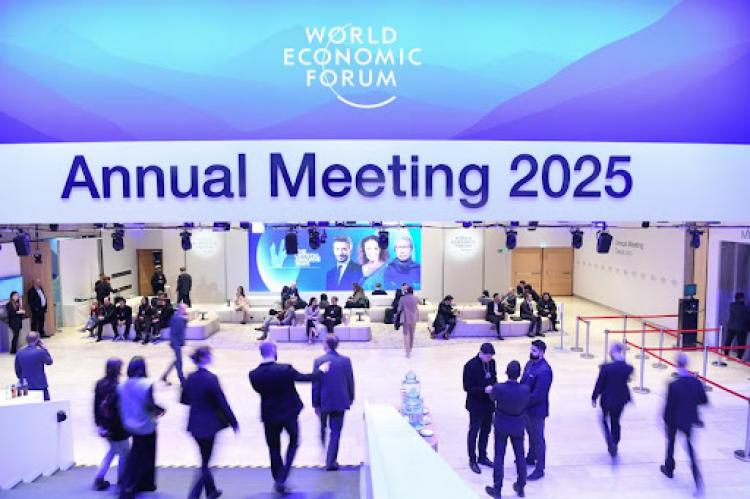Global Strategies to Combat Inflation: Lessons for Belize and Developing Nations
By: Omar Silva
Editor/Publisher: National Perspective Bz – Digital 2025
Belize City: Thursday 23rd January 2025
The recently concluded World Economic Forum in Davos brought together world leaders, economists, and policymakers to address pressing global challenges. Chief among them was the persistent issue of inflation, which continues to erode economic stability worldwide. A series of measures were proposed to tackle inflation head-on while fostering economic growth. These measures not only have implications for developed economies but also carry potential lessons for smaller nations like Belize and other developing countries striving for transformative economic progress.
The Four Pillars of Davos’ Inflation Strategy
- Reduction of Oil Prices:
U.S. President Donald Trump emphasized the necessity of reducing oil prices, highlighting their significant contribution to inflation globally. He argued that lower oil prices could curtail revenue for major energy-exporting nations engaged in geopolitical conflicts, such as Russia during the ongoing Russia-Ukraine war. For developing nations like Belize, which heavily rely on imported fuel, such a measure could dramatically reduce transportation and production costs, alleviating pressure on consumers and businesses alike.
- Lowering Interest Rates:
Trump advocated for global reductions in interest rates, citing the link between lower energy costs and diminished inflationary pressures. For Belize, where borrowing costs remain high, this could translate into greater access to affordable credit for small businesses, farmers, and consumers. The resulting economic activity could stimulate growth, but only if accompanied by transparent fiscal management to prevent misuse of such opportunities by political elites.
- Encouraging Domestic Manufacturing through Tariffs:
The forum underscored the importance of bolstering domestic production to reduce reliance on imports. By imposing tariffs on foreign-made goods, developed nations aim to encourage companies to relocate manufacturing domestically. For Belize, this model could inspire initiatives to develop its own manufacturing base, focusing on agriculture, agro-processing, and eco-friendly products. However, success would require dismantling the current extractive political class that prioritizes short-term gains over long-term national development.
- Tax Cuts and Deregulation:
Plans for corporate tax cuts and eased regulations were proposed to stimulate investment and expand production capacity. Belize could benefit from similar strategies by offering tax incentives for industries that prioritize innovation and sustainability. However, effective oversight is essential to ensure that such incentives do not merely enrich the political elite but instead promote widespread economic growth and job creation.
The Domino Effect: Implications for Developing Nations
If implemented globally, these measures could create ripple effects that benefit developing economies. For instance, reduced oil prices and interest rates would lower the cost of essential imports, ease fiscal pressures, and create opportunities for debt-strapped nations like Belize to redirect funds toward education, healthcare, and infrastructure. Similarly, encouraging domestic manufacturing could inspire smaller nations to pursue self-sufficiency, reducing dependence on volatile global supply chains.
Removing Belize’s Extractive Class: A Prerequisite for Transformation
To fully capitalize on such strategies, Belize must first address its internal barriers to progress. The entrenched extractive political class—a network of elites who prioritize personal enrichment over national development—has stifled economic innovation and perpetuated inequality. Decolonizing Belize’s political system is essential to shift focus toward transformative economic policies that empower citizens and foster equitable growth.
By dismantling these outdated structures, Belize can embrace a new model of governance that prioritizes:
- Sustainable Development: Leveraging its natural resources, such as agriculture and eco-tourism, to create industries that benefit the masses rather than a select few.
- Economic Independence: Promoting industrialization and manufacturing to reduce reliance on imports and external debt.
- Education and Skill Development: Establishing institutions to train Belizeans in high-demand fields, equipping them to lead the country’s transformation.
- Transparent Governance: Ensuring that public resources are managed responsibly and equitably to benefit all citizens.
A Path Forward
Davos’ proposed measures offer a roadmap not just for economic recovery but for systemic transformation. Belize and other developing nations must seize this moment to enact bold reforms, breaking free from the grip of extractive elites and colonial-era political practices. By aligning with these global strategies and tailoring them to local contexts, Belize can embark on a journey toward true economic independence and prosperity.
The time for transformative action is now. Belize must embrace the principles of transparency, innovation, and inclusivity to pave the way for a brighter future—not just for its citizens but as a model for other developing nations seeking a way forward in an increasingly interconnected world.
- Log in to post comments

